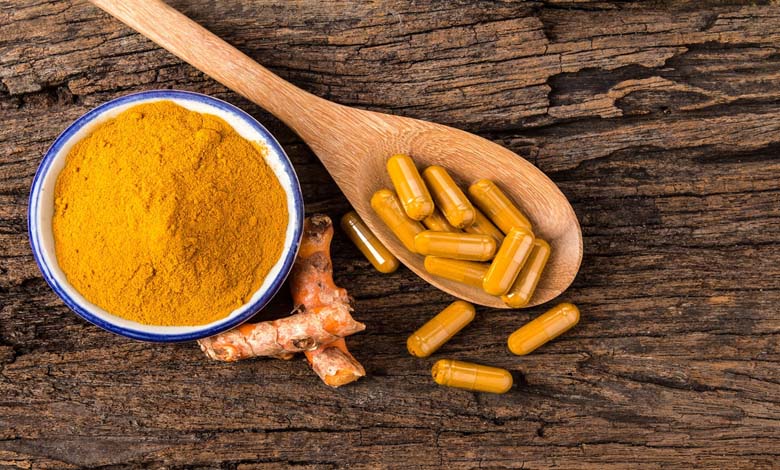Medical Warnings About Turmeric Supplements: An Underestimated Threat to Liver Health

Turmeric, the golden root native to South Asia and revered in Ayurvedic medicine for centuries, has gained global popularity in the wellness industry. Marketed as a natural anti-inflammatory and antioxidant, turmeric—and more precisely its active compound curcumin—is widely used in supplement form to alleviate chronic inflammation, improve digestion, boost immunity, and prevent age-related diseases. However, behind the golden promises of this ancient spice lies a growing body of medical evidence warning of its potentially serious effects on liver health, particularly when consumed in concentrated supplemental forms.
-
Black Cumin : A Natural Anti-Inflammatory Stronger Than Turmeric and Ginger
-
Turmeric: When Can It Pose a Risk to Kidney Health?
The curcumin paradox: potent benefits, underestimated risks
Scientific literature acknowledges curcumin’s wide-ranging bioactive properties. In laboratory studies and animal models, it has been shown to modulate inflammatory cytokines, reduce oxidative stress, and even exert anti-cancer effects. But translating these results into clinical efficacy in humans remains complex. To overcome curcumin’s naturally poor bioavailability, supplement manufacturers often formulate high-dose extracts enhanced with bioenhancers like piperine, derived from black pepper. This increases absorption, but also elevates the risk of side effects—especially liver toxicity.
-
Ginger and Turmeric: “Hidden” Side Effects
-
Common Spices That May Cancel Out the Effects of Medications
Unlike dietary turmeric, which is consumed in small amounts and absorbed slowly, turmeric supplements deliver concentrated doses of curcumin that the liver must process and detoxify. This can place a significant metabolic burden on the organ. When used without medical supervision and over long periods, these supplements can become hepatotoxic—meaning they may cause liver damage.
Documented cases of liver injury linked to turmeric
In recent years, several national health agencies—including Italy’s AIFA and Canada’s Health Canada—have reported adverse events involving turmeric supplements. These include cases of acute hepatitis, cholestatic liver injury, and elevated liver enzymes. In some instances, patients presented with jaundice, fatigue, nausea, and abdominal pain. Medical investigations often concluded that the turmeric supplements were the likely cause, especially in cases where other potential hepatotoxic agents were ruled out.
-
Ginger – The Natural Ally for Your Heart Health
-
Ashwagandha: The Secret of the Ayurvedic Herb to Enhance Cognitive Abilities
While such reactions remain relatively rare, they are significant because they challenge the public’s perception that “natural equals safe.” These cases also highlight a troubling trend: self-medication using herbal supplements without proper guidance. Many individuals use turmeric supplements alongside other medications or herbal products, unaware of possible interactions that can strain the liver.
The silent burden on the liver
The liver, central to drug metabolism and detoxification, is remarkably resilient—but not invincible. Liver damage often begins asymptomatically, making it hard to detect until it becomes serious. For patients with pre-existing liver conditions, autoimmune diseases, or those undergoing polypharmacy, the risk of supplement-induced liver injury increases significantly. This makes medical oversight essential, particularly when using high-potency curcumin supplements.
Regulatory challenges and lack of oversight
In most countries, dietary supplements are regulated more leniently than pharmaceuticals. Manufacturers are not always required to conduct rigorous clinical trials, and product quality can vary drastically. Labels may lack clear dosage instructions or warnings about possible liver risks. In some cases, supplements contain undeclared ingredients or excessive doses of active compounds. This regulatory gap leaves consumers vulnerable to misinformation and potential harm.
Expert advice and recommendations
Given the emerging evidence, health professionals now urge caution. Individuals with liver disease, those on hepatically metabolized drugs, and the elderly should avoid turmeric supplements unless prescribed by a physician. Even healthy adults should not assume these products are harmless. Instead, experts recommend prioritizing dietary sources of turmeric within a balanced diet. If supplementation is necessary, it should be done with medical supervision, in the lowest effective dose, and for the shortest possible duration.
-
Ginger, a spice full of tonus
-
Unlocking the Potential Health Benefits of Curcumin: From Inflammation to Cancer Prevention
Turmeric supplements, while promising, are not without risks—particularly to liver health. The growing number of adverse reports underscores the need for greater consumer awareness and stricter regulation. Before embracing turmeric pills as a panacea, it is crucial to understand that nature’s power can be a double-edged sword. Responsible use, scientific vigilance, and informed decision-making are key to protecting the body’s most essential detoxification organ: the liver.












